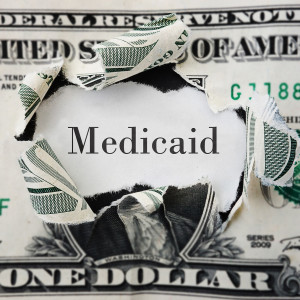The Biden administration claims to support price transparency in healthcare. The Centers for Medicare and Medicaid Services has formally warned hundreds of hospitals to comply with federal rules requiring them to post their prices publicly. And the agency just rolled out a new rule designed to “advance prescription drug transparency in Medicaid.”
But that drug pricing rule has little to do with transparency. It’s an opaque bid by the White House to impose price controls on drug makers. If implemented, it would stifle research into potentially life-saving therapies.
The rule would require drug companies to turn over secret, proprietary data through an annual “price verification survey.” A Department of Health and Human Services press release claims that this data collection would “increase transparency about why certain drug prices are expensive for Medicaid and help states better negotiate what the Medicaid program pays for high-cost drugs.”
The feds are offering drug firms a way out. If they agree to participate in “price negotiations” with the government or pay sizable rebates to Medicaid, they’d be exempt from the annual price verification survey.
It’s tantamount to extortion. Pay up, CMS is telling private companies, if you want to keep your confidential business data confidential.
Either way, CMS gets what it wants. Companies slash prices and pay rebates to the government, or they make public sensitive pricing information, enabling lawmakers and advocacy groups to name and shame them until they lower their prices.
This is a flagrant abuse of government power. Worse still, it wouldn’t do anything to help patients.
First, the rule would force drug makers to pay rebates directly to the government rather than to patients. That’s on top of the rebates drug makers already pay the government through the Medicaid Drug Rebate Program. Last year, pharmaceutical companies paid the government $43 billion in rebates through this program — more than half of total Medicaid drug spending.
Moreover, by bleeding tens of billions of dollars from pharmaceutical companies, the administration’s transparency rule would make it harder to develop new drugs.
Ninety percent of drugs that enter clinical trials fail to garner approval. Because of this high failure rate, bringing a new drug to market takes more than a decade and costs nearly $3 billion. It takes companies years to recoup their investment, cover the losses on failed drugs, and earn enough money to fund future projects.
Government policies that siphon off pharmaceutical revenue discourage companies from undertaking new research projects — and could compel them to stop some already in progress.
Unfortunately, this seems to be the modus operandi of the Biden administration’s drug pricing policies. The Inflation Reduction Act, signed into law by the president last year, empowers the federal government to set artificially low prices for 10 brand-name drugs dispensed through Medicare beginning in 2026, 15 more each of the following two years, and 20 from 2029 on.
Companies are already slashing investments in research in response. For instance, Genentech’s CEO recently said that his company is considering slowing the development of drugs for rare diseases to focus on drugs with a larger patient pool.
As a result of decisions like these, economists estimate that as many as 139 fewer drugs may not be developed over the next 10 years.
The new Medicaid rule will only worsen the Inflation Reduction Act’s destructive effect on drug development. Indeed, the White House is pitching the rule as an extension of the bill. The press release announcing the rule boasts that it “would advance the Biden-Harris Administration’s efforts to complement the Inflation Reduction Act and further drive down prescription drug costs.”
Never mind that CMS does not have the legal authority to wrest additional Medicaid rebates from drug makers. The IRA certainly didn’t give the agency that right. Congress shouldn’t stand for this kind of executive overreach.
Price transparency is an important and useful tool that can stoke competition and lead to lower costs and higher quality. This proposed Medicaid rule is not price transparency — it’s a pitch for price controls. And it can’t be allowed to go into effect.

